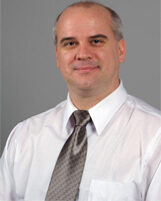RESPONSIBILITIES OF THE CANDIDATE : The main task of the postdoctoral researcher is to ensure that the theoretical developments achieved by the research team will lead to the final goal and objectives: the design of a new GNSS signal simulator for a hybrid IF/RF GPS and Galileo constellation. He will work on the most important theoretical subjects of the project, from the initial design of the satellite constellation and its validation, the generation of the mobile trajectories, the development of the different signal sources and structures, up to the final real-time implementation and validation tests. One of the main tasks of the postdoctoral researcher is to ensure, together with the professors in charge of the research project that the research topics proposed during the 4 years is progressing well according to the schedule. He should also support the team members during their research activities, guide and supervise their research work. He will always have a general view of the global project and mainly on the progress in the theoretical field and main problematic issues. He will be well positioned concerning the work of the interns, Master and PhD students in the theoretical field of the research. Although the postdoctoral researcher will be less involved in the direct real-time implementation of the various developed algorithms, he will be very active in their development and validation (by himself or by the research team members: PhD and Master’s students). He will be active on the RF developments as well as on the digital signal processing done in the IF. The four years program will be address as follow: – During the first year, the postdoctoral researcher will start his research work with a thorough overview of the GNSS simulator requirements and goals and with a detailed literature review, a theoretical background about the GNSS signal simulator development and implementation. He will be actively involved in the design and validation of the hybrid GNSS satellite constellation, including the GNSS navigation message generation. An important part of his work will deal with the development of GPS/Galileo signals, their validation and analysis in simulation. He will also be active in the generation of the receiver trajectory, its analysis and validation. During this period, the postdoctoral fellow will work very closely with the PhD student on these research subjects. – During the second year, the postdoctoral researcher will be more involved on the RF design synchronization with the digital processing platform. He will work very closely with the research professional and will be involved in the improvement of the obtained performances. – In the third year, the postdoctoral researcher will work mainly on the algorithm development in simulation of the perturbation model for the GNSS signal simulator. This will include the satellite constellation perturbations, the signal propagation perturbations (atmospheric perturbations) and the antenna modeling. He will focus on the improvements that should be accounted for in order to obtain a perturbation model as more realistic as possible. He will start with a thorough review of the existent models, develop a hybrid improved version of it, will validate to model and will test their implementation in simulation. He will also work closely with the research professional, the PhD student and the Master students with regards to real-time implementation of the perturbation model. – During the last year, the postdoctoral researcher will focus on the SBAS and interference development in simulation. He will implement and validate the SBAS navigation message generation and the SBAS signal generation. He will also work close with the research professional, the PhD and the Master students on the real-time implementation. The postdoctoral researcher will supervise, together with the professor in charge of the project, the research work of the PhD student over a period of 4 years. He will also supervise and guide the research of the Master’s students. He will be in charge, together with the PhD student, of the publications resulting from the theoretical aspects related to the research project.
![]()
